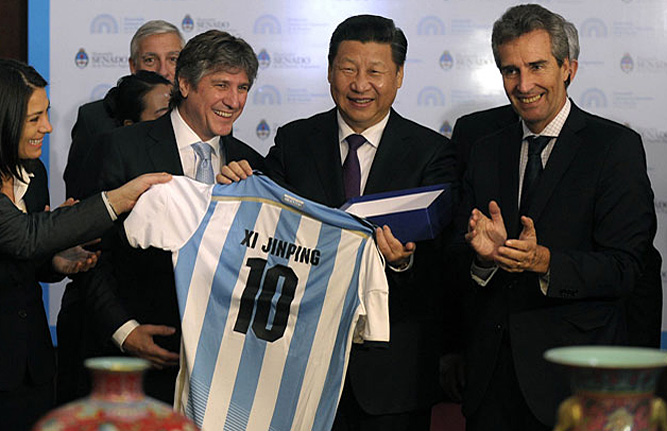IFC becomes largest issuer of London-Listed renminbi bonds
By Cecily Liu (chinadaily.com.cn) Updated: 2014-09-18 05:40International Finance Corporation issued 1 billion yuan worth of ($163 million) renminbi bonds on Wednesday in London, which made it now the largest issuer of renminbi-denominated bonds on the London Stock Exchange.
The five-year issuance marks the second time IFC has issued a benchmark-sized renminbi bond this year. The bond is also the longest-dated renminbi bond by a triple-A rated issuer on the exchange. In all, IFC has issued about 4.25 billion yuan in renminbi-denominated bonds in London.
Vice President and Treasurer Hua Jingdong said IFC decided to issue the renminbi bonds to increase foreign investment in China and support the internationalization of the Chinese currency.
He said so far IFC has invested the proceeds of a lot of its renminbi bonds in China's interbank market, and in the process helped to deepen China's bond market, with the future plan to eventually invest proceeds directly into IFC's projects in China.
The bond yields 3.1 percent. Investor types included central banks, official institutions, commercial banks, insurance companies, and asset managers globally. BNP Paribas, Industrial and Commercial Bank of China, and Standard Chartered Bank and were lead arrangers for the bond.
In China, IFC focuses on private sector investments that help to fight climate change, enable rural development, and promote sustainable Chinese investments overseas. Since 1985, IFC has invested about $7 billion in more than 270 projects in the country, including nearly 3 billion yuan in local-currency investments.
It also works with the Chinese government to create a regulatory and legal environment that supports the growth of financial services, hence its efforts to help deepen China's renminbi bonds market also contribute to the goal.
IFC previously pioneered the international issuance of renminbi-denominated bonds in China (Panda bonds) and Hong Kong (Dim Sum bonds). IFC was also the first to set up a program to regularly issue offshore renminbi-denominated discount notes.
IFC became the first international financial institution to issue renminbi bonds in London in March, and in June it also issued the first renminbi green bonds in London.
To date, there are 20 renminbi denominated bonds listed on the London Stock Exchange, totaling 15 billion yuan. Other previous issuers include Bank of China, European Bank for Reconstruction and Development, Lloyds Bank and HSBC.
Hua said London's international financial market means its renminbi bonds can attract investors globally, and the UK government's commitment to make London a major offshore renminbi hub also contributed towards IFC's decision to issue renminbi bonds in London.
A recent breakthrough in London's renminbi activities is the UK government's plans to sell the world's first non-Chinese sovereign bond denominated in renminbi, to finance the nation's foreign-currency reserves, announced following the UK-China Economic and Financial Dialogue on September 12.
Hua said the announcement has great economic significance because for the renminbi to be used by the UK government, a triple A rated sovereign, it signals that perhaps the UK government is eventually making the Chinese yuan a reserve currency.
"For them to tap into a new currency it diversifies their funding resources. It gives them another avenue of funding. So it makes a lot of sense," Hua said.
Hua said the renminbi's prominence as a reserve currency is growing, and this is partly reflected by the fact many central banks have invested into IFC's offshore yuan bonds.
But the timescale of the renminbi becoming a reserve currency will depend on how quickly the Chinese government liberalizes its capital account controls on the renminbi, he said. "I'm optimistic that it will happen in the not so far away future."









